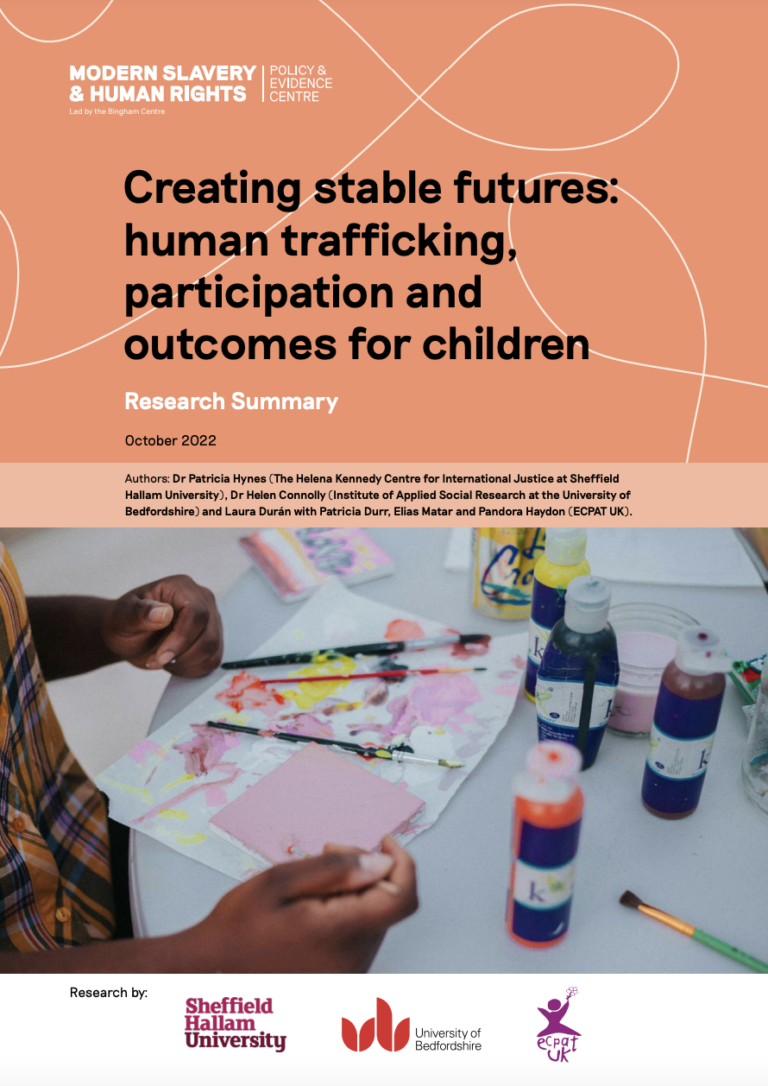2017 UK Annual Report on Modern Slavery
PublicationsThis Annual Report focuses on the steps the UK Government, the Scottish Government and the Northern Ireland Executive have taken in 2017 to combat modern slavery, including human trafficking.
The voices of children and young people who have experienced human trafficking, modern slavery or exploitation are missing from debates in the UK, with their opinions rarely taken into account in the development of law, policy and services. This includes a lack of focus on ‘outcomes’, made more complex by the variable meaning of the term in practice and in literature. The aim of this study was to understand what positive outcomes and pathways towards these positive outcomes might look like from the perspectives of young people subjected to human trafficking, modern slavery and exploitation.
This study followed the What Works for Children’s Social Care definition of ‘outcomes’ as the consequence of an action, where an action is a particular service or way of working, but with a focus on rights-based, child-defined outcomes, encompassing children and young people’s views of their own progress, lived experience and the main goals they wish to achieve. This definition is set out with an understanding that achievement of outcomes is dependent on the wider structures and contexts in which young people live their lives.

This Annual Report focuses on the steps the UK Government, the Scottish Government and the Northern Ireland Executive have taken in 2017 to combat modern slavery, including human trafficking.
Modern slavery in all of its guises – such as human trafficking, forced labour, sexual exploitation and organ trafficking – is endemic in many countries. It often preys on society’s most vulnerable people, stripping them of their rights to fre...Read More
For several years now, international media has shone a spotlight on the inhumane working conditions of migrant fishers from Southeast Asia. The vessels they work on reportedly use destructive, illegal, and unreported methods, which take a heavy toll...Read More
In 2022, according to sources on the ground, the trafficking of Rohingya is still very much ongoing. This report is an attempt to bring together data on the human trafficking and migration routes from Myanmar to Bangladesh and other destinations in ...Read More